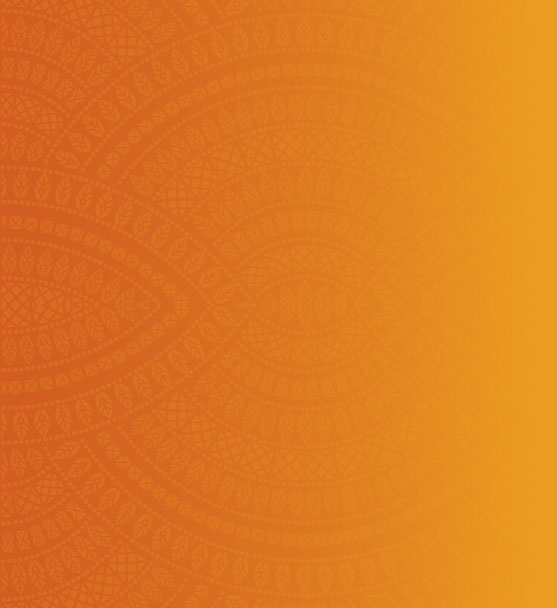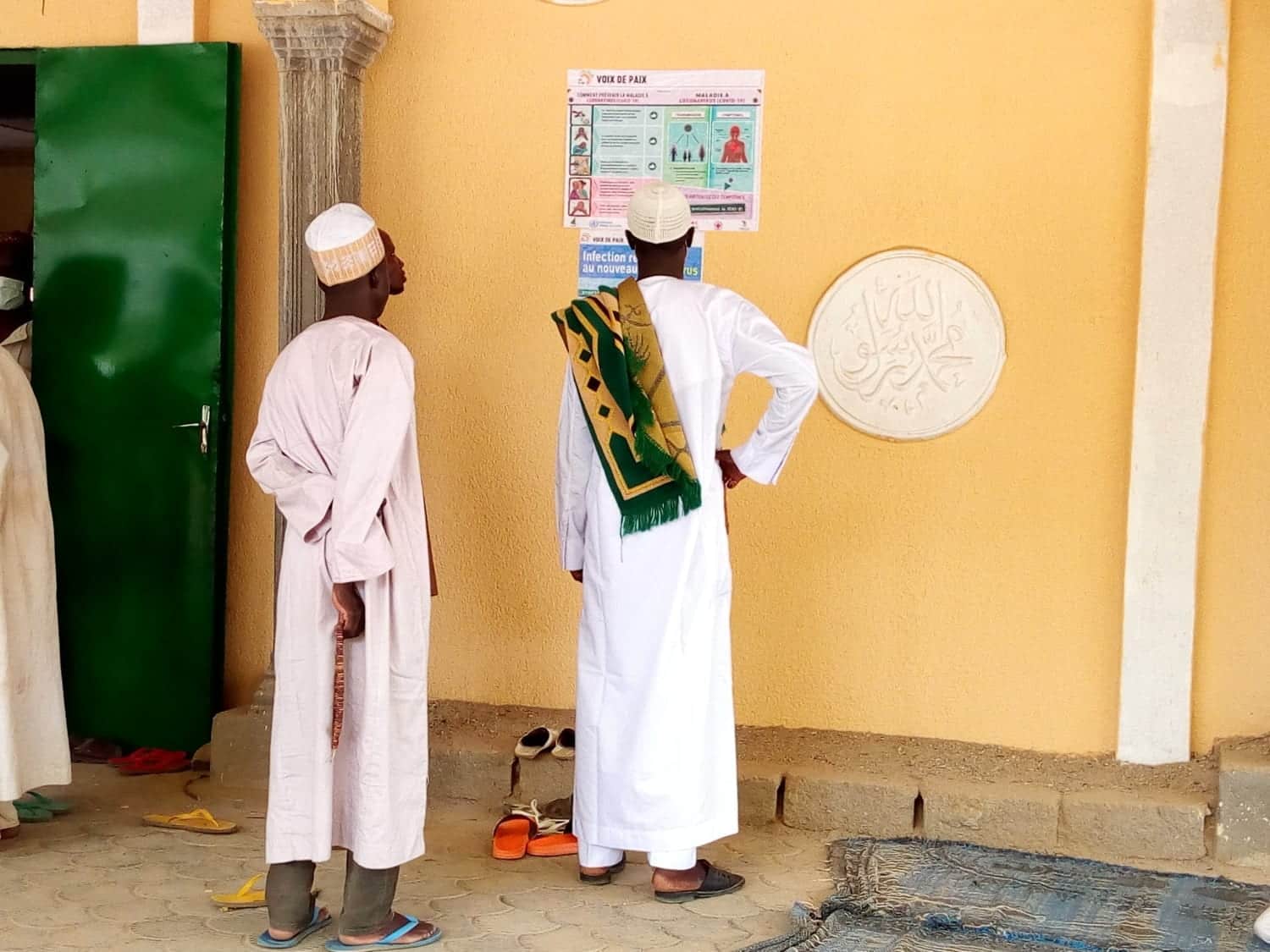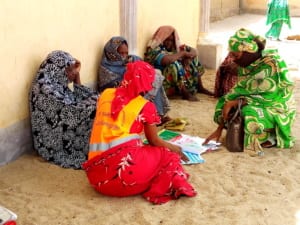

Amplifying COVID-19 Prevention Messages while Ensuring Peace in Mosques across Northern Cameroon
During the past several months, V4P staff and partners have taken rapid, innovative steps to advance COVID-19 prevention messaging in underserved Sahelian communities.
A Project of —
Voices for Peace (V4P)

During the past several months, while the world has been reacting to the most sudden, dramatic disruptions in living memory, Voices for Peace (V4P) staff and their local partners have taken rapid, innovative steps to advance COVID-19 prevention messaging in underserved Sahelian communities.
Getting to Know the Mosques
Some protestors in communities around the Lake Chad Basin perceived the new COVID-related restrictions as a challenge against Islam, more specifically their right to congregate and worship in mosques. In mid-April, V4P identified 40 mosques in 10 municipalities across northern Cameroon, which serve as social hubs at the heart of their communities. We started by approaching mayors, government and traditional leaders, community health workers, imams, and mosque congregations to discuss how to prevent conflicts related to COVID-19. Overall, V4P was able to comply with COVID restrictions and still hold 2,088 discussions to assess whether our key messages would resonate and to gather local opinions and suggestions to make them more effective.

Our messages were straightforward: the importance of adhering to social distancing measures in mosques in ways that do not lead to misunderstandings, conflict, and violence. We also promoted hand washing, limiting numbers of people in one place to no more than 50, and maintaining the required safe distance between individuals. Finally, we stressed the need to prevent the spread of misinformation related to COVID-19, which could lead to conflict.
To prepare for the discussions, we held consultative meetings with community leaders to refine our strategies and synchronize our messages. They then visited each mosque and observed discussions among the imams and their congregants during Friday prayers.
While the imams led discussions about COVID-19 in the mosques, community leaders shared information leaflets, and provided face masks and soap. Based on these and other discussions, we developed a questionnaire and proceeded to collect data using both the surveys and direct observation and discussions in all 40 mosques. We conducted follow-up interviews with all the imams for additional information and clarification following the data analysis.
Overcoming Some Initial Resistance
Some findings were expected, while some challenged the staff to find new ways to achieve desired behavior changes for better public health and collaboration with authorities.
We had almost total agreement from the imams about our proposed COVID-19 messaging activities in the mosques, with the exception of a few who were cautious because of a recent conflict between security forces and mosque attendees in Mayo Oulo who refused to respect social distancing rules.
While most people surveyed understood the importance of social distancing in general to prevent COVID-19, about half the congregants were still against social distancing while inside the mosque, as they believe that individual or distant prayer is not as effective as being together. A few individuals even resisted hand washing, face masks, the presence of security forces, and any social distancing at all, which they considered contrary to the rules and customs of Islam. Going forward, V4P will work with religious leaders to identify passages in the scripture books that speak of preventing diseases, for example, chapters in the Koran that dissuade the faithful from travelling to areas suffering from plagues.
Another key finding is that government must do a better job at proactively communicating its message to reduce frustrations, misinformation, and misunderstood intentions. For example, many people could not understand why the government allowed markets and bars to remain open, while shutting down some mosques over social distancing.
Conclusions
Developing a better understanding of the behaviors and beliefs in these 10 communities has provided invaluable insight into the broader areas where V4P works. V4P has made efforts during its three years to understand the complex push and pull factors that fuel violent extremism in West Africa, and now COVID-19 has stirred those factors in unpredictable ways. We will continue to work closely with civil society, radio partners, and community leaders to refine our messaging and evaluate our impact.
We learned that we should continue to work with religious leaders to identify messages grounded in local cultural or religious tradition that support positive behavior change. Many imams proposed that we continue to hold awareness-raising discussions and engage community members beyond the religious spaces. Based on our discussions and evaluations, we are considering scaling up our experience to additional mosques throughout the region so that all imams are using similar language and messaging around COVID-19.